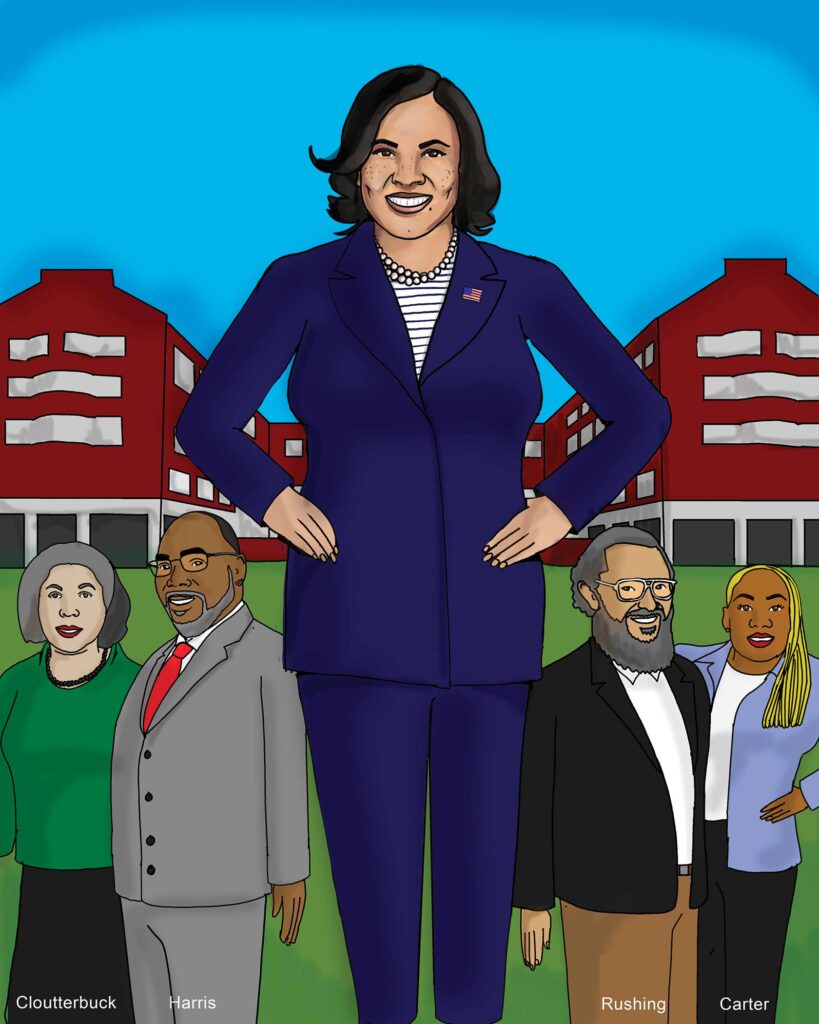
Over the past 50 years, Roxbury Community College has provided quality education to generations of students. RCC’s curriculum focus has always been about providing real tools for members of Boston Black and brown communities to learn skills and find jobs that can blossom into rewarding careers.
And after 50 years of existence, that focus has not changed. When we think of community members with some of the greatest challenges to entering the workforce, no group faces more obstacles than formerly incarcerated individuals. In order for RCC to continue to live up to its mandate, programs for those who are transitioning from life behind bars are a compassionate and even necessary addition to the college’s offerings. Especially given the inequities in our criminal justice system that see people of color imprisoned at disproportionately higher rates.
Higher education can and should be a pathway for men and women who have survived the ordeal of sentencing and incarceration to rejoin society. And it is to achieve that end that RCC has justly hired former Suffolk County District Attorney and U.S. Attorney Rachael Rollins to run its newly created Restorative Justice Project.
In her part-time administrative role, Rollins will oversee the program serving “individuals returning from incarceration by providing them with sufficient tools to emerge as leaders, poised to create systemic, sustainable change for their communities,” said Joyce Taylor Gibson, the college’s executive vice president of academic and student affairs, in a Jan. 26 memo to faculty and staff.
Rollins’s national reputation as an activist for criminal justice reform helped vault her from the position of elected district attorney to an appointment by President Biden as U.S. Attorney for Massachusetts, with the deciding confirmation vote cast by Vice President Kamala Harris to break a 50-50 tie following contentious Senate hearings.
Her tenure in federal office notably ended after 16 months over her involvement in partisan campaign activity, including illegal efforts to influence the battle over her successor as Suffolk County D.A.
That blemish should not overshadow her significant advancements of criminal justice reform, nor render her ineligible for the RCC post, as some critics have wrongly demanded. Just recently, the Massachusetts Supreme Judicial Court ruled in favor of a petition originally filed by Rollins to ban the sentencing of anyone under the age of 21 to life without parole. As Suffolk D.A., she created the conviction integrity unit to review past convictions for potential mistakes, including the notorious Shawn Ellis case in which an innocent defendant was railroaded along the prison pipeline for the murder of a Boston cop. Her efforts to decriminalize petty offenses stirred fierce opposition, but studies by economists at Rutgers and Texas A&M have shown that her policy changes did not lead to an increase in the crime rate and that it lowered the likelihood of non-violent misdemeanor offenders being arrested in the future.
The restless and relentless Boston media like nothing more than to hold public officials accountable for lapses in judgment. But the competition for ratings and sensational headlines often run afoul of the truth. The expiration of her law license last month after she forgot to pay yearly dues resulted in a simple administrative suspension of her license to practice – not, as some media accounts reported it, a severe judgment to disbar. Hundreds of lawyers every year forget to pay the yearly fee, but only Rachael ended up on the cover of a local tabloid.
Rachael Rollins’s long legal career dates back to serving as a law clerk to Massachusetts Appeals Court Judge Frederick Brown, a Black pioneer in the Commonwealth’s court system. She worked in private practice for a top Boston law firm, was a field attorney for the National Labor Relations Board, served as an assistant U.S. Attorney for the District of Massachusetts and held the position of general counsel to several major quasi-public agencies. She has seen the law in action from the inside out. Unlike most attorneys who may not like but accept what they see in our legal system, she went about changing it, acquiring powerful enemies and critics along the way.
There is no question about her qualifications to oversee the Restorative Justice Project at Roxbury Community College. Her experience and insights will enhance efforts to offer education and services to those seeking a new start after incarceration, particularly women of color. RCC has a long history of its faculty working in prison education programs. The appointment of Rachel Rollins is a much-needed expansion of that engagement and is fully consistent with achieving the RCC mission of opening its doors to all who seek a better life through education.







